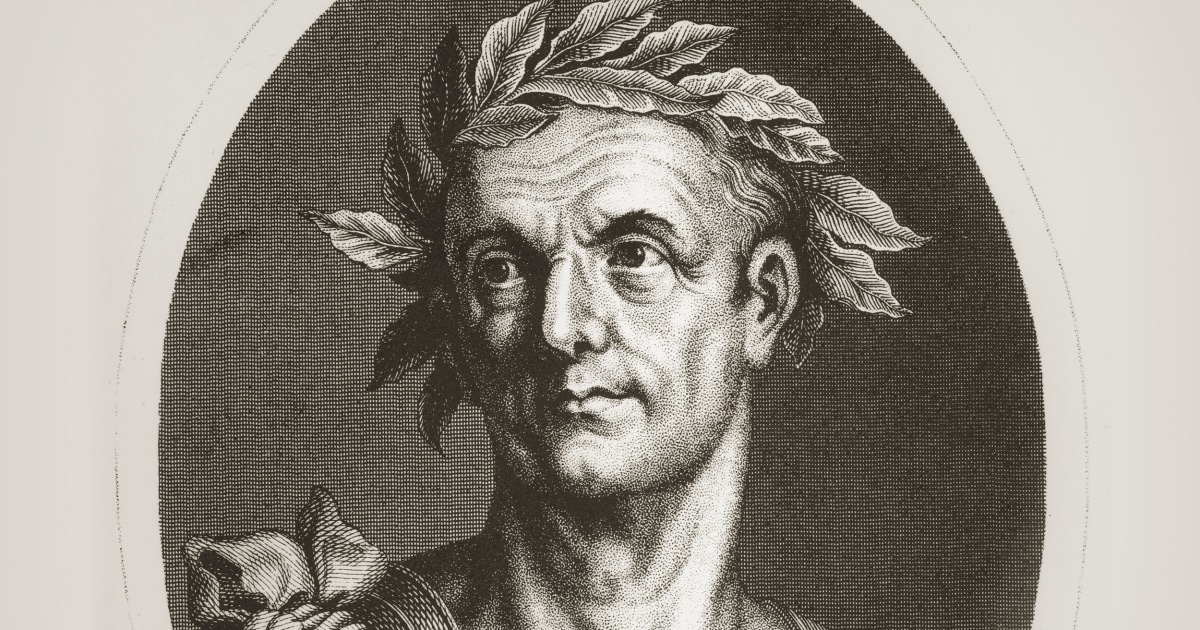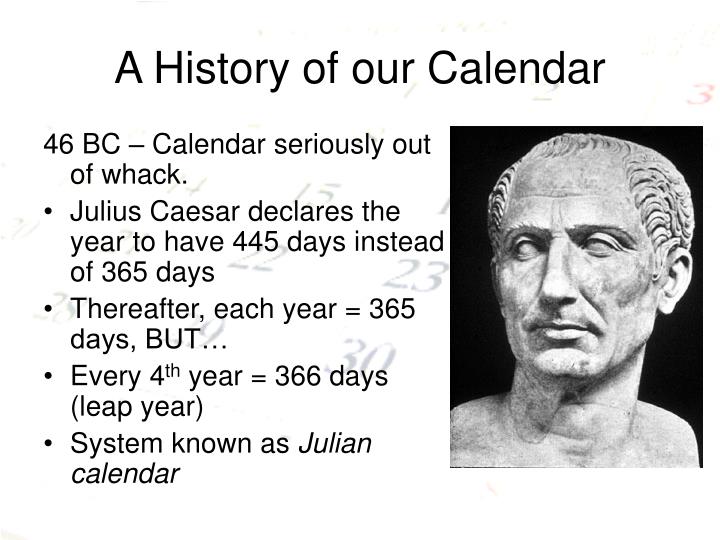Julius caesar invented the leap year in 46 b c when he proposed the julian calender which was based on the earth s rotations of the sun

Julius Caesar: The Inventor of Leap Year

Have you ever wondered why we have an extra day in February every four years? Well, you can thank Julius Caesar for that! In 46 B.C., this remarkable Roman leader proposed the ‘Julian calendar,’ which introduced the concept of a leap year. This ingenious idea was based on the Earth’s rotation around the sun.
The Julian calendar brought significant changes to the way we track time and helped synchronize our lives with the celestial movements. It aimed to rectify the discrepancies that had accumulated since the inception of the previous Roman calendar, which only had ten months. Caesar’s extraordinary vision propelled humanity into a more structured and accurate measurement of time.

Before the Julian calendar, people followed a lunar calendar, which counted 355 days in a year. However, the Earth’s orbit around the sun takes approximately 365.24 days. This misalignment resulted in significant deviations between the calendar year and the astronomical year. Over time, these discrepancies led to confusion and caused chaos in various aspects of daily life, such as agriculture and religious observances.
To resolve these issues, Caesar engaged the assistance of the remarkable Alexandrian astronomer, Sosigenes. Together, they devised a more accurate calendar system that corresponded closely to the Earth’s rotation around the sun. The new Julian calendar introduced a year consisting of 365 days with an additional day every four years. This additional day, which fell on February 29th, became known as Leap Day.
The implementation of the Julian calendar was a tremendous success, as it improved the synchronization of the calendar year with the Earth’s rotation around the sun. Moreover, it established a more stable and efficient timekeeping system that remains in use in modified forms today.
Although the Julian calendar was a remarkable invention, it wasn’t entirely perfect. The system still had a slight overcorrection, as it added one extra day every 128 years. Consequently, this imperfection was corrected in 1582 when the Gregorian calendar, introduced by Pope Gregory XIII, made further adjustments. The Gregorian calendar refined the leap year concept and provided a more accurate approach to account for the Earth’s rotation.
The importance of Julius Caesar’s invention cannot be overstated. His efforts revolutionized the way we organize and measure time, ensuring a harmonious coexistence with the celestial cycles. Today, we still celebrate Leap Day every four years, giving February the rare opportunity to showcase its extra day.
To learn more about the fascinating history and significance of leap year, visit history.com.
Tags
Share
Related Posts
Quick Links
Legal Stuff

